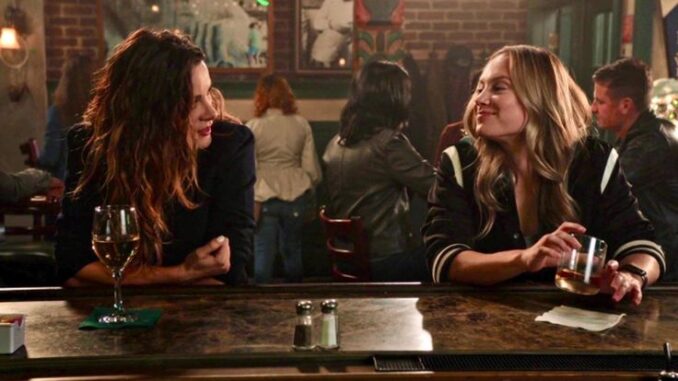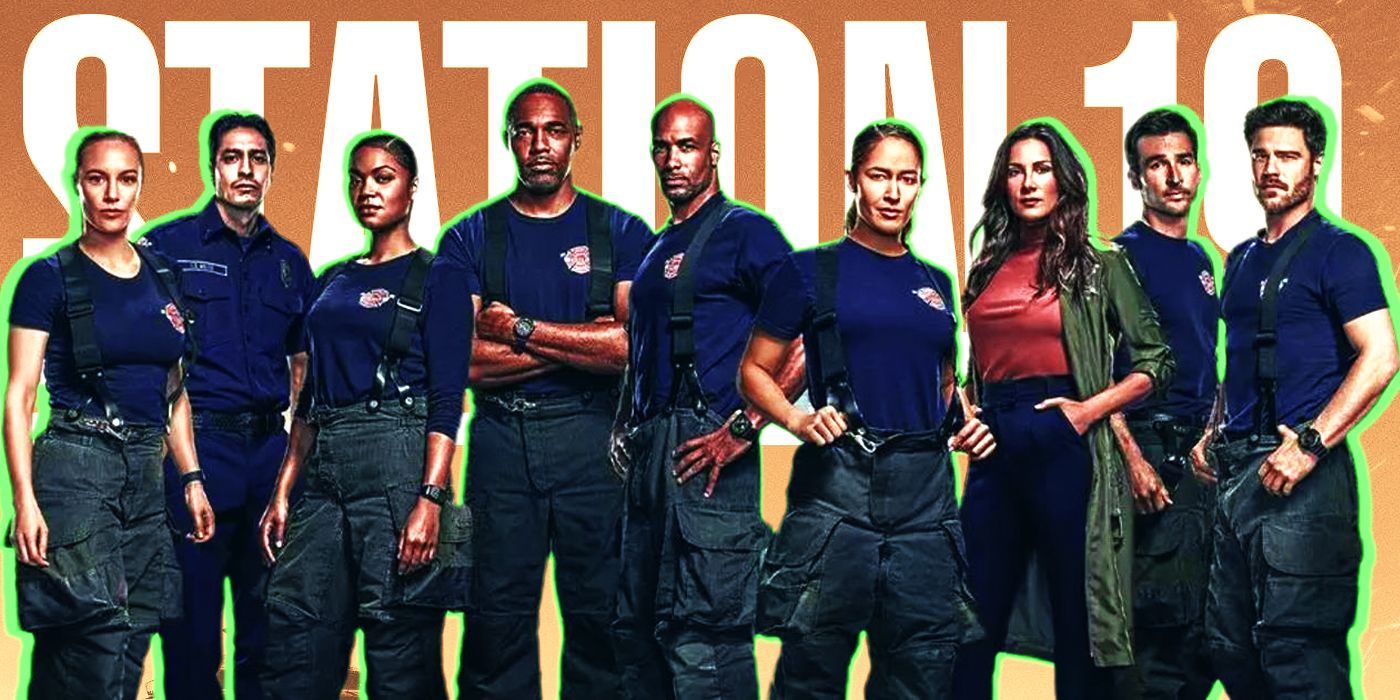
‘Station 19’ Cast and Producers Reflect on 100 Episodes, Diverse Storytelling, and the Surprise Cancellation
After 100 action-packed episodes, heart-wrenching drama, and a loyal fanbase, Station 19 came to an unexpected end. As the show wrapped up its seven-season run, the cast and producers took a moment to reflect on the series’ impact, particularly its diverse storytelling, the relationships built on and off-screen, and the surprising cancellation. The show, a spin-off of Grey’s Anatomy, explored the lives of Seattle firefighters—showing not just the intense rescues, but also the deeply personal struggles of each character. In this article, we’ll look back at Station 19’s journey through its 100 episodes, why the cancellation caught everyone off guard, and how the series made an indelible mark on both television and viewers.
The Milestone: 100 Episodes of Action, Drama, and Emotion
Reaching 100 episodes is a significant milestone for any TV series, especially one that blends high-stakes action with intense personal drama. For Station 19, hitting this mark was a testament to the show’s resilience, its loyal fanbase, and the cast’s dedication to telling compelling stories. Cast members and producers have shared their thoughts on what it meant to hit this major milestone and what it represented for the team behind the scenes.
A Tribute to the Cast and Crew’s Dedication
Jaina Lee Ortiz, who played Andy Herrera, shared her gratitude for the experience, reflecting on the emotional journey of her character. “It’s been such a privilege to portray a firefighter who is strong, vulnerable, and complex. Reaching 100 episodes is more than a number—it’s a celebration of everything we’ve built together as a team,” she said during an interview.
Showrunner Krista Vernoff echoed this sentiment, acknowledging the hard work and passion that the entire cast and crew poured into each episode. “We wanted to tell real, authentic stories that touched on issues people care about,” Vernoff explained. “The cast and crew were the heart of this show, and every one of those 100 episodes represents their dedication to making something special.”
The Power of Diverse Storytelling: Breaking Boundaries and Changing Conversations
One of the standout features of Station 19 was its commitment to diverse storytelling. From race and gender to sexuality and mental health, the show consistently tackled important societal issues. It wasn’t just about the fires the team fought; it was about the battles within themselves and their communities.
Diversity on Screen: Paving the Way for Representation
The series featured a rich and diverse cast, with a broad spectrum of characters representing different ethnicities, sexual orientations, and backgrounds. A notable example was the portrayal of Maya Bishop (Danielle Savre) and Carina DeLuca (Stefania Spampinato), one of TV’s most beloved LGBTQ+ couples. Their relationship, shown as both tender and complicated, broke new ground in the portrayal of queer love stories on primetime television.
“One of the things we’re most proud of is that we were able to tell stories that were truly representative of the world we live in,” said Savre. “Maya and Carina’s relationship was a huge part of that. We weren’t just telling a love story; we were telling a story about acceptance, challenges, and love in all its forms.”
For the producers, the decision to explore such stories wasn’t a gimmick—it was a core part of what Station 19 aimed to do. Krista Vernoff added, “Television is a powerful tool for cultural change. By telling stories that reflect a variety of voices, experiences, and identities, we have the power to impact the way people see the world and each other. I’m proud of what we accomplished in making sure that everyone felt seen.”
The Show’s Impact on Mental Health and Trauma
Another significant aspect of the show’s storytelling was its portrayal of trauma and mental health, particularly for first responders. Characters like Ben Warren (Jason George) and Jack Gibson (Grey Damon) dealt with PTSD, guilt, and anxiety as a result of their work in the field. By highlighting these struggles, Station 19 shed light on the emotional toll of being a first responder—something that is often underrepresented in media.
“It was important to us that we show the reality of what firefighters go through mentally,” said George. “Ben’s journey, especially with the trauma from his experiences, was one of the most rewarding things I’ve done on the show. I hope it helped people understand that mental health is just as important as physical health, especially for those in high-stress professions.”
The Surprise Cancellation: What Happened Behind the Scenes?
Despite the success Station 19 found in its first few seasons, the news of its cancellation after Season 7 came as a shock to many fans. With a dedicated viewership and the legacy of Grey’s Anatomy behind it, many believed that the show still had more to give. So, why was it canceled, and how did the cast and crew react?
The Uncertainty of TV’s Changing Landscape
The decision to cancel Station 19 was largely driven by the shifting landscape of television and changing network priorities. The rise of streaming platforms, changing audience habits, and the financial realities of producing a high-budget series all played a role in the cancellation. While Station 19 maintained a loyal fanbase, ratings had begun to dip in later seasons, which made the show less viable for the network to continue supporting.
Krista Vernoff expressed her shock at the cancellation news. “We thought we had more stories to tell. We had just begun to scratch the surface with some of the emotional arcs and character developments. It’s always tough when you’re in a position where you know your show has so much more to give, but the network has different priorities.”
The Cast’s Emotional Goodbye
The cancellation was particularly hard for the cast, many of whom had spent years working together and building strong friendships. For Jaina Lee Ortiz, Station 19 was more than just a job—it was a family. “Saying goodbye was one of the hardest things I’ve ever done. It’s rare to be on a show where you truly bond with everyone, cast and crew alike,” she admitted. “We didn’t just lose a show—we lost a family.”
Likewise, Jason George expressed his gratitude for the opportunity to portray Ben, a character he deeply connected with. “Being part of a show that’s so meaningful to people is a privilege. The show may have ended, but the relationships and the impact we had will last forever,” George said.
Reflecting on the Legacy of ‘Station 19’
While the series may be over, the impact of Station 19 will not soon be forgotten. The show’s bold approach to storytelling, its diverse representation, and its focus on the lives of first responders set it apart from other shows in the genre. Fans are still mourning the loss, but they continue to celebrate the show’s legacy.
The Show’s Lasting Influence
Even in its final episodes, Station 19 showed just how powerful television can be in changing the narrative. By showing real, human stories and highlighting the struggles and triumphs of marginalized groups, the show left an indelible mark on viewers.
Danielle Savre, who portrayed Maya Bishop, summed it up perfectly: “We had so many amazing moments on this show, but the thing I’m most proud of is how we got to tell stories that mattered. It wasn’t just about the drama—it was about making sure we had representation and that we tackled real-world issues. That’s the legacy of Station 19.”
Conclusion: A Show That Will Be Missed, but Not Forgotten
Station 19 may have come to an unexpected end, but its legacy is far from over. From its portrayal of diverse characters and relationships to its exploration of mental health and trauma, the show made an impact that will resonate with fans for years to come. The cast and crew, while saddened by the cancellation, are proud of what they accomplished in the 100 episodes they created. It was a show that brought both action and heart, and its influence will be felt long after the final episode airs.
Frequently Asked Questions
1. Why was Station 19 canceled?
Station 19 was canceled due to a combination of declining ratings, changes in network priorities, and the financial challenges of producing a high-budget show in a competitive TV landscape.
2. What was the legacy of Station 19?
The show’s legacy lies in its commitment to diverse representation, its portrayal of mental health struggles, and its ability to tell powerful, real-world stories about first responders and their communities.
